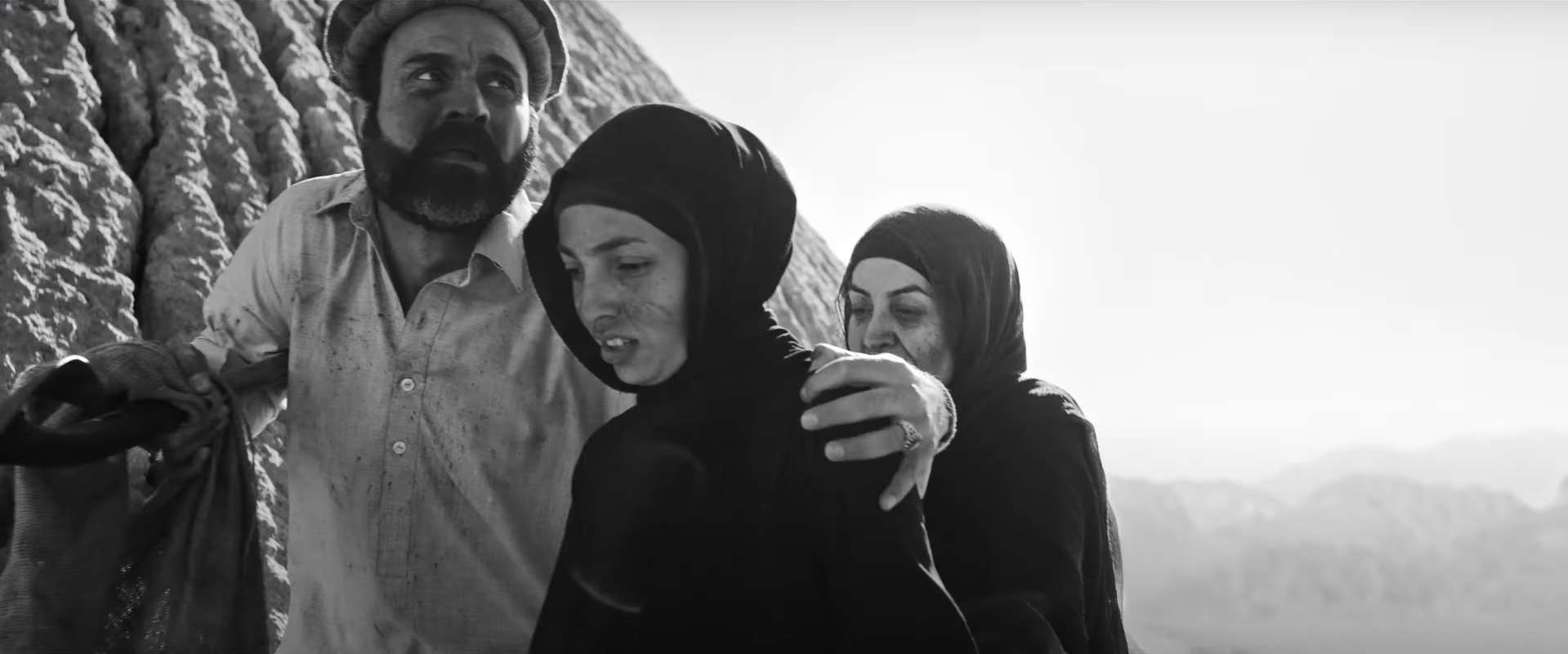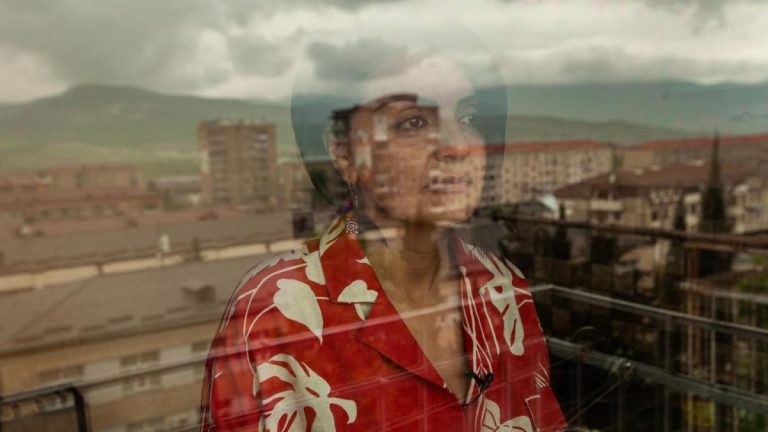“My Melbourne” (2024) is a unique Indo-Australian collaboration where Indian filmmakers, namely, Onir, Imtiaz Ali, Rima Das, and Kabir Khan, team up with local talents in Melbourne to tell four stories about race, gender, sexuality and disability. Based on true migrant experiences, the anthology of four shorts features tales of displacement, discrimination, inequality, alienation, and estrangement of four individuals grounded by unique situations in Melbourne but bound together by similar aspirations and themes. Reflecting on South Asian realities, the film provides the platform to showcase a few unsaid stories and represent some of the underrepresented voices in the Australian city of Melbourne that resonate globally.
With “My Melbourne” (2024), each filmmaker directs a prime display of their auteurship by doing what they do best. Rima Das directs “Emma” which tells the story of a talented deaf dancer in pursuit of acceptance while overcoming discrimination. “Jules” by Imtiaz Ali is a story of self-discovery, acceptance, and empowerment told through the experiences of its protagonist, Sakshi. “Setara” by Kabir Khan merges Khan’s affection for stories from war-torn landscapes and the thrill of cricket matches while “Nandini” by Onir is the story of a queer protagonist’s estrangement turned acceptance from his father.
The first tale of this anthology is Onir’s quiet and deeply moving short “Nandini.” A meditative exploration of love, loss, grief, and forgiveness, the film speaks of the invisible and sacred thread that binds people with their loved ones. The characters, Indraneel (Arka Das), a son who has lost his mother, and Mihir (Mouli Ganguly), a father who has lost his wife, are all fragile in their own ways as they navigate their loss and grief. The son is also seeking his father’s acceptance as much as the father is looking for a way to deal with his own emotional complexities.
The inclusive landscape of Melbourne is no less short of diversity or acceptability but Indraneel yearns for an understanding of his choice from his father. Onir approaches the father-son reunion with delicate care, fine-tuning his craft with empathy as the heart and essence of his narrative. It makes this short film honest and ripe with emotion. Indraneel’s deceased mother is a force that forges a connection between the father and his son (both literally and figuratively), which helps him establish a sense of belonging later. With very judicious use of dialogue and cuts, it is the unhurried quietness of the narrative that lets the emotions shine in this one. “Nandini” is co-directed by William Duan.

Imtiaz Ali’s “Jules” is about a newlywed Punjabi girl from India who is low on confidence but high on aspirations and struggling to fit into a new life in Melbourne. Residing with her husband in an apartment, the story shows her daily routine of solitude as she moves between her home and workplace. Ali’s filmmaking is reliably simple and follows a conscious choice of themes that connect “Jules” to his previous feature-length works. Imtiaz Ali’s protagonists have always been characters who are away from their comfort spaces or suffer from a lack of understanding or awareness of their own true selves.
And in this tale too, Sakshi (Arushi Sharma) is in a foreign land that doesn’t seem to welcome her as much as she wants to feel welcomed. She feels insecure and carries multiple reservations about approaching people and voicing herself. The homesick protagonist longs for her home as she frequently video-calls her mother during work. She is also intimidated by a homeless woman (Jules, played by Kat Stewart) who solves crosswords and frequently hurls curses at her.
Positioning his narrative at the crossroads of race and gender, “Jules” is about a young woman, navigating dual complexities of belongingness, first in her place of work and second in her marriage. Her husband dislikes when someone keeps their arm over her shoulder and clicks a photo. He will react immediately and then demand she remove such photographs from social media, and if she refuses, he denies her entry into their home. After battling multiple monsters, Sakshi ultimately finds her true self and realizes that her colleagues or the homeless woman are not as difficult as she had originally assumed.
When she learns that the real threat that holds her back is not outside but inside, she realizes that ‘home’ is just a concept with the actual idea being a sense of belonging and a shared feeling of oneness. She soon realizes this, when she fails to locate the homeless lady, whom she frequently meets on her way to work. Also, there’s a conscious decision to keep the husband faceless or invisible in the film (we only hear his voice) as he serves as an embodiment of control and oppression. It is not just patriarchy but all our irrational and misaligned thoughts that hold us back. “Jules” is co-directed by Tammy Yang.
A similar journey of self-discovery and empowerment finds space in Rima Das’ “Emma” which is the third short of the anthology. Das’s film explores themes of identity, friendship, resilience, and the power of art through the story of Emma (Ryanna Skye Lawson), a talented deaf dancer in her early twenties. As Das portrays her protagonist’s internal struggle to overcome numerous obstacles, she masterfully employs silence in both sound design—mirroring the character’s quiet world—and expressive dance sequences, where true liberation comes to life.

Das’s auteurship is recognizable in the way she treats her protagonist’s longing and also in the choices of light in the film. Moreover, her choice to place the female character surrounded by the greens and blues is an immediate evocation of her earlier features, “Village Rockstars” (2017) and “Bulbul Can Sing” (2018). She tackles the character of this young girl, who lacks confidence, in a quiet and natural setup, as she always does, to translate it to a tender and affectionate journey of self-acceptance and liberation. Her story is a reminder that we must first feel free in order to achieve freedom. “Emma” is co-directed by Samira Cox.
Kabir Khan’s “Setara” tells a highly energetic and thrill-infused story of Setara (Setara Amiri), a sportsperson, who migrates to Melbourne from the conflict-torn landscape of Afghanistan. Kabir Khan lands on his turf as he brings a war-torn backdrop and a cricket match together – both having a recall value to his previous works. Once again, the plot’s evil remains unseen, with the echoes of gunfire and explosions confined to the background. In the rush, Setara’s father hides all her medals and trophies in the ground and sends her with her mother to Melbourne for a new and better life. Setara’s fear and apprehension of being in a new school soon fade away when she performs exceptionally during a training session of cricket in her school.
It also deservingly earns her a wild card entry to join the school’s female cricket team. After that, there is no looking back for Setara. But the only worry here is her mother, a judge back in her country and now a simple domestic worker, who wants Setara to only focus on her studies. The real enemy here is our own inhibitions and circumstances—the way we perceive, judge, and limit ourselves. This brings in self-doubt but Setara is determined, and she shines with the support of her teammates who respect her culture, identity, and sportsperson spirit.
Kabir Khan’s style is straight out of Bollywood and “Setara” is indeed loud in its inspirational beats with the music remaining always on the top. His direction is high on spirit as it celebrates the immense courage and spirit of a young migrant girl as a cinematic ode to ultimate triumph. “Setara” is co-directed by Puneet Gulati. The anthology film has great takeaways for the way we see and identify ourselves, our ideas of home, belongingness, discrimination, and empowerment. “My Melbourne” (2024) was screened as the closing film of the recently concluded 1st Guwahati Asian Film Festival (GAFF). It will be released theatrically in India on March 14, 2025, and in Australia, New Zealand, and Fiji on March 6, 2025.

![When Marnie Was There [2015]: The Ones who Love us never really Leave us.](https://79468c92.delivery.rocketcdn.me/wp-content/uploads/2016/01/c109743c-4dfa-498f-bc23-6fec69fd5b3e.jpg)
![Dealer/Healer [2017]: NYAFF Review](https://79468c92.delivery.rocketcdn.me/wp-content/uploads/2017/07/Dealer-Healer-768x432.jpg)
![The Fam [2021]: ‘Berlinale’ Review – A mercurial coming-of-age portrait of a group of teenage girls at a care facility](https://79468c92.delivery.rocketcdn.me/wp-content/uploads/2021/03/The-Fam-1-highonfilms-768x402.jpg)
![The Girl With The Dragon Tattoo [2011]: Sultry Dragon on a Slender Shoulder](https://79468c92.delivery.rocketcdn.me/wp-content/uploads/2017/06/the-girl-with-the-dragon-tattoo-768x315.jpg)
![The Girl and the Spider [2021]: ‘Berlinale’ Review – A powerfully choreographed exploration of alienation](https://79468c92.delivery.rocketcdn.me/wp-content/uploads/2021/03/The-Girl-and-the-Spider-1-highonfilms-768x463.jpg)
